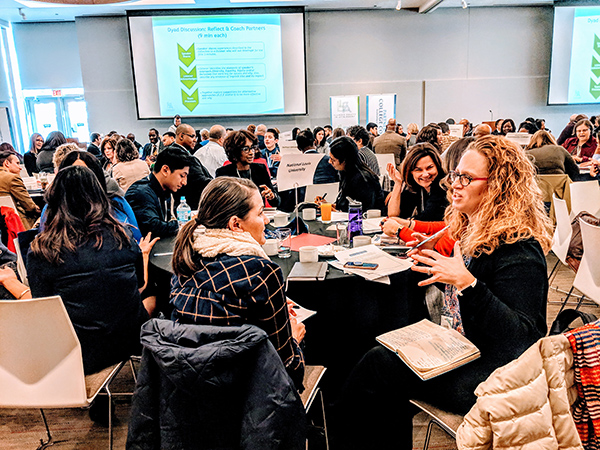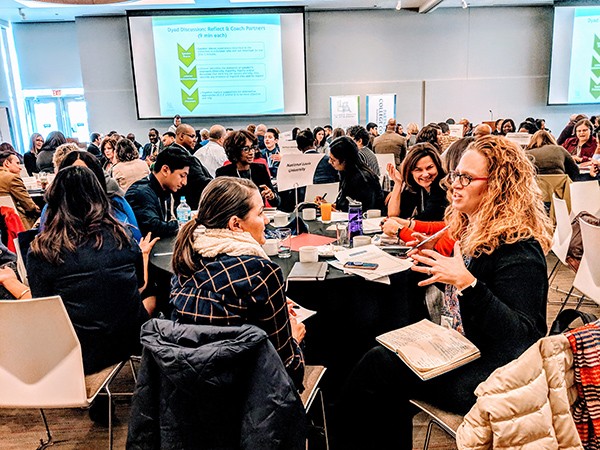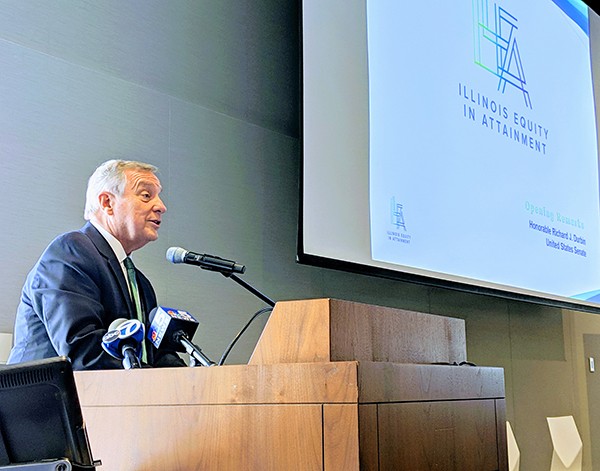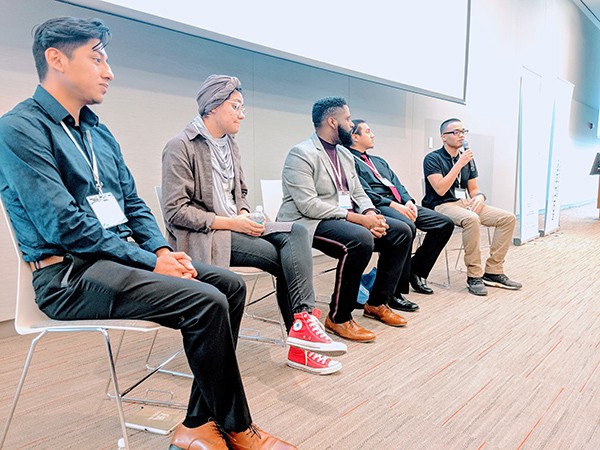
The PCC held our first Illinois Equity in Attainment (ILEA) Summit on November 13, bringing together leaders of 25 colleges and universities, national education experts, and students to discuss how programs can be developed, shared, and implemented to eliminate institutional achievement gaps in college degree completion for low-income, first generation, African-American and Latino students by 2025. More than 200 participants spent the day in workshops and breakout sessions discussing how to define equity, build community, explore how data can drive action, and set the path forward.
The Summit followed the ILEA launch on October 2, in which colleges representing 223,000 students, 37% of the Illinois undergraduate enrollment, pledged to eliminate longstanding institutional inequities in degree completion by race and income. The Partnership’s initial primary area of focus is the seven-county region including and surrounding Chicago. The Summit represents a key piece of the Partnership’s strategy: using our resources and convening power to support the ILEA institutions through sharing of data and best practices.
The tone of the day was set by US Sen. Dick Durbin, the first in his family to graduate from college, who went on to earn a law degree before becoming a US Senator. “What you are doing may be the most important thing for this country,” he said. In other introductory remarks, City Colleges of Chicago Chancellor Juan Salgado noted that every one of the seven colleges has “enthusiastically embraced” the ILEA initiative. He said that the quality of our success will depend on how far we can move students from where they began to realize their true potential.
Students from five ILEA institutions – Governors State, Malcolm X, National Louis, University of Illinois at Chicago, and Waubonsee Community College – reminded educators to acknowledge the challenges many students face, from college readiness to financial pressures to mental health concerns. They may also face racist or sexist remarks. The solutions: awareness, first, then having in place an array of support systems that ease the transition into and through college, together with the connections and networks to post-graduate career opportunities.
Throughout the Summit, participants examined personal experiences, assumptions, and biases – important steps to understand the hurdles that lie in front of students. But, to develop and apply policies and practices to close equity gaps at scale, the value of obtaining actionable data could not be understated. Participants in all sessions, and notably in a discussion facilitated by leaders from Achieving the Dream and the College of Lake County, spoke of gathering data that is descriptive, diagnostic, predictive, and proscriptive. Data can be used, for example, by faculty to re-design courses or to create specific success strategies for each student that extend beyond college completion to securing sustainable employment.
Changing demographics in college enrollment and in the workplace make the work of the Partnership and ILEA especially timely. Said Lori Suddick, President of The College of Lake County: “There is an urgent need to address both the economic and moral imperative to this work. Joining the Illinois Equity in Attainment Initiative supports CLC’s focus on ensuring equity in access and success so every student completes.”
The participation of the 25 colleges is a first in many regards. Each of the ILEA institutions will develop an equity plan that includes annual growth targets for low-income, first generation, African-American and Latino students. The Partnership will issue annual reports on progress toward these goals. The ILEA Summit marks one of the first steps, with colleges participating in a series of activities over the coming months, leading to draft equity plans by July and final plans in place by December 2019.




